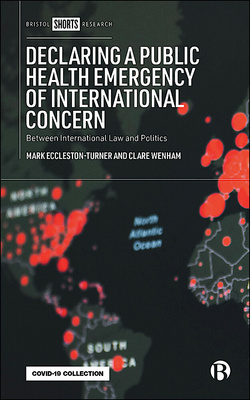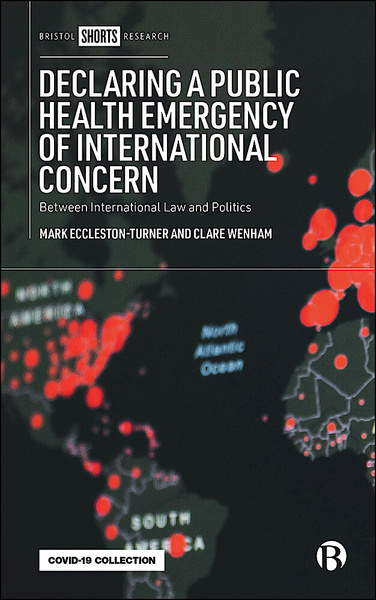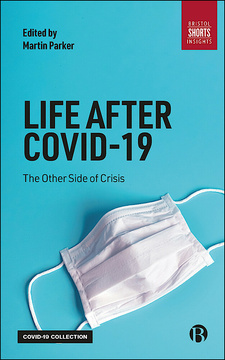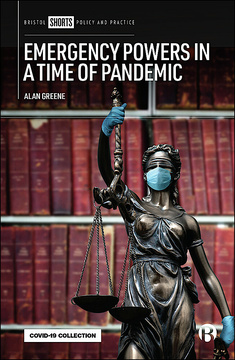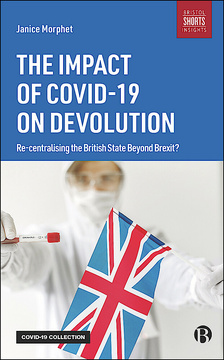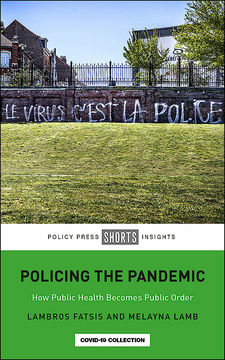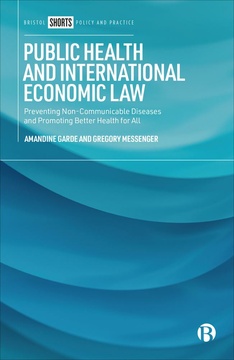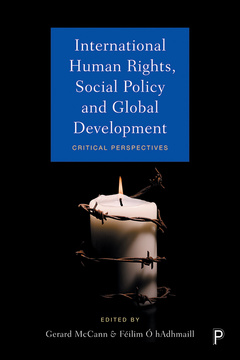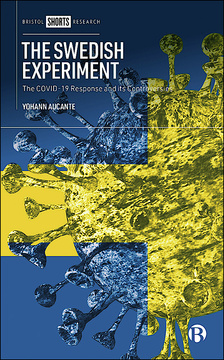Declaring a Public Health Emergency of International Concern
Between International Law and Politics
By Mark Eccleston-Turner and Clare Wenham
Published
Oct 19, 2021Page count
184 pagesISBN
978-1529219333Dimensions
203 x 127 mmImprint
Bristol University PressPublished
Oct 19, 2021Page count
184 pagesISBN
978-1529219340Dimensions
203 x 127 mmImprint
Bristol University PressPublished
Oct 19, 2021Page count
184 pagesISBN
978-1529219340Dimensions
203 x 127 mmImprint
Bristol University PressAmid a global health crisis, the process for declaring a Public Health Emergency of International Concern (PHEIC) is at a crossroads.
As a formal declaration by the World Health Organization, a PHEIC is governed by clear legislation as to what is, and what is not, deemed a global health security threat. However, it has become increasingly politicized, and the legal criteria now appear to be secondary to the political motivation or outcome of the announcement. Addressing multiple empirical case studies, including COVID-19, this multidisciplinary book explores the relationship between international law and international relations to interrogate how a PHEIC is declared and its role in how we collectively respond to outbreaks.
“This is a timely and important book. Combining differing disciplinary approaches, it provides an incisive and critical analysis of a topic of growing controversy in the global health community.” Keith Syrett, University of Bristol
Mark Eccleston-Turner is a Lecturer of Global Health Law at Keele University.
Clare Wenham is Associate Professor of Global Health Policy at the London School of Economics and Political Science.
Introduction
1. From Westphaliam to Post-Westphalian? The Origins of the PHEIC Declaration and the 2005 International Health Regulations
2. A Public Health Emergency of International Concern: Between Legal Obligations and Political Reality
3. Case Studies on the PHEIC Declaration
4. Events That Were Not Declared a PHEIC
Conclusion







